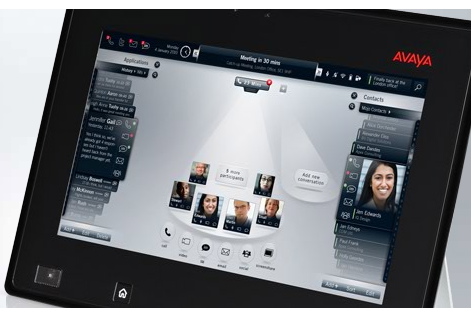This blog posting was first posted on NoJitter.com, May 14, 2008.
Telepresence has really improved the video communications experience. High definition (HD) video conferencing has really improved the video communications experience. The life-sized, blur-free and crystal clear presentation of remote meeting participants, the directionally-synchronized artifact-free audio quality, excellent and flattering lighting placement, the clever mind-tricks of the curved furniture and simple session engagement mechanisms all make for an awesome, technology-transparent business meeting.
To help spur recognition for the quality improvement many of the leading proponents in the market have also demonstrated their technology prowess at major venues in new and interesting ways. Cisco brought their telepresence offer to the main stage at VoiceCon in Orlando to show how it can easily support the travel weary CEO and Nobel-laureate former vice president in life-like remote keynote speeches. Nortel used their telepresence service capability to convene expert panels from around North America, Europe and Asia as part of the Fortune Green Conference in Pasadena. And, at Interop, LifeSize demonstrated how the tradeshow booth can become an interaction portal to company experts without the cost, carbon and hassle of business travel.
There has been a lot of prose written about the quality of the ‘telepresence experience’ as a distinct discontinuity from the legacy video conferencing experiences in this and other blogs. I don’t doubt the huge improvement in experience quality since it is perfectly consistent with my own recollections and experiences. But some pundits and vendors are making a big distinction between high definition (HD) video conferencing and telepresence, something that our research finds hard to justify.
First of all, there is a 6-x to 9-x price multiplier distinction between HD and telepresence equipment. For example, list price for a Cisco TelePresence 3000 room is $299,000 while the MSRP for the LifeSize Conference HD equipment is $39,999. This $260,000 gap buys an awful lot of monitors, lighting fixtures, wall treatments and furniture. Even Cisco’s recently announced Personal TelePresence 500 system is listed at $33,900, compared to the HD-equivalent LifeSize Express at less than $5,000. Yes, it’s true that these are not exactly the same pieces of equipment, but does Cisco’s addition of a monitor and a light really explain a $28,900 premium in an executive system?
Users can’t see a quality gap between telepresence and HD. In fact most see HD as higher quality than telepresence. In the Brockmann & Company report, The Perfect Storm: Why Video Conferencing Will Dominate Business Communications more users told us that ‘high definition’ meant the highest level of quality than did users who thought ‘telepresence’ meant the highest quality. And in our recently published report, The Value of Video Communications , more users are impressed by being invited to an HD meeting with suppliers than an identical invitation to an immersive telepresence session.
Even still, both the telepresence experience and the HD video conferencing experience avoid the same amount of business travel, carbon dioxide emissions and make employees as productive as the other technology, so it’s not that the telepresence system has a stronger business case than HD, just that it has a much higher price, something that the practical business user would agree is not justified.









